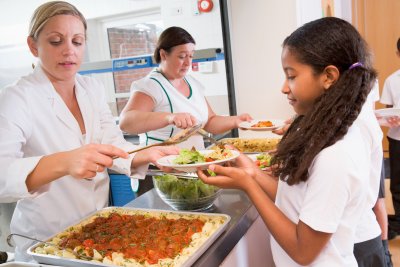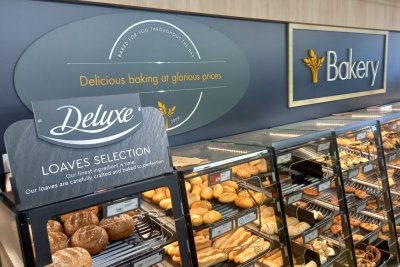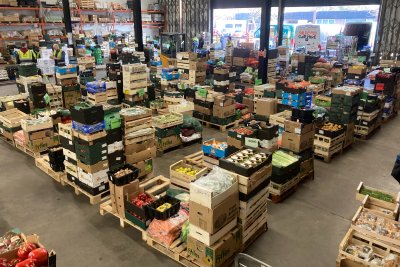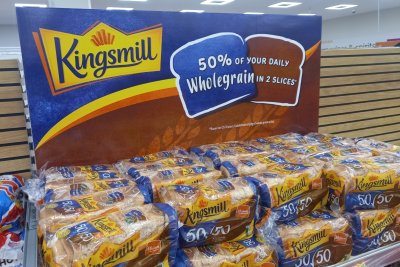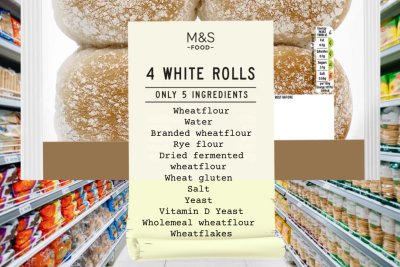.jpg) Woman shopping wearing a face mask during Covid-19. Credit: Anna Shvetz
Woman shopping wearing a face mask during Covid-19. Credit: Anna Shvetz
People Power: Five food actions we can all take to get us through the Covid-19 emergency
How do we act effectively, safely, and for long-term resilience when personally supporting local food aid efforts, asks Sustainable Food Places Local Action Coordinator Vera Zakharov.
If, like me, you have joined one of 3,000 local mutual aid or volunteer support networks helping their fellow residents get through the Covid-19 pandemic, you are bowled over by the immense compassion and solidarity alive in our neighbourhoods. Yet the need for these networks to mobilise with such speed in the face of government physical distancing measures exposes just how fragile our social care and food systems are.
Analysis conducted by the Food Foundation found that, in addition to the 1.5 million people in the UK identified by the government as medically vulnerable and asked to self-isolate at home, another 4 to 7 million people beyond this category may struggle to feed themselves and their families due to loss of income and other Covid-related challenges in the weeks and months to come.
While the NHS and government agencies are working fast to implement emergency food aid support for the clinically vulnerable, many more people will require support to get them through these difficult times. Local food partnerships and other organisations are coordinating emergency food aid responses to support anyone experiencing food insecurity, but these on their own are not enough to reach everyone, and quickly.
Grassroots groups such as those in the Mutual Aid network are often the first to offer help to someone who is struggling at this time. Many people are stepping in to offer grocery shopping support and food donations to those who are self-isolating. While this is an immediate and compassionate way to support others through food, it’s not the only way. There are plenty of roles for us to fill as a good food movement of mutual support and solidarity.
I hope you and your local group find this useful. This is by no means a definitive guide, but rather what I’ve come across so far through my local mutual aid group network and witnessing local responses in Sustainable Food Places, Food Power and London Food Link networks. If you’re aware of other ways grassroots groups and individuals have stepped up to safeguard their communities and local food systems, or are experiencing challenges to this effect, I’d love to hear from you.
Put safety first
This bears repeating, as the risks associated with a Covid-19 infection can be deadly for some people. No matter the situation, always follow government advice on helping safely. Always put health and safety first, and community care second. Prioritise working with charity and council-led services to further minimise risk for vulnerable people or volunteers. If you or your group feel you must help someone experiencing food insecurity in the absence of other support, take every precaution. Cambridge Sustainable Food has put together useful guidance on safely handling and delivering food while avoiding risk of infection.
Become a food signposter
There may already be a coordinated and linked up emergency food aid response in your area already, led by the Council, food aid charity or a food partnership. Do some research, get in touch, and request that they work with your local Mutual Aid groups - you are on the very frontlines and may be the first to witness hidden food insecurity in your community, so effective collaboration is key.
- Find out if your area has a Food Partnership or Food Poverty Alliance coordinating efforts
- Find your local food banks and distribution charities through Trussell Trust, Independent Food Aid Network and FareShare. Get in touch to check they are operating, and how your community can help.
- Find out what cooked meal provision is available – some community cafes and day centres have switched to take away and delivery services for free or low cost support.
- Find out what local shops, restaurants, pubs and supermarkets are doing to support food deliveries. It’s worth exploring the logistics of people collecting shopping for others. You can ask local food businesses to provide dedicated shopping times for key workers and vulnerable groups.
- Arm yourself and your group with this local signposting info. Sign up for food partnership and charity newsletter updates to stay in the loop.
Sign up to volunteer
Check the websites below to find a local organisation to volunteer with. Please note that many food banks and food organisations are small volunteer-run projects. They will be overwhelmed with requests, and some may even have to close, so check with the council or other umbrella organisations before getting directly in touch.
- Sign up to volunteer with the NHS Community Responder service focusing on critical deliveries to medically vulnerable people.
- If you’re not already part of a local Mutual Aid group, join one or start one for your area.
- Find your local volunteer centre through the NVCO.
- Your local food aid groups and food partnerships will be signposting to food-related volunteer opportunities too.
- Join the ACORN Community Support network if there is one in your city or connect with local volunteering schemes through Do-It.
Donate money
Food banks are facing compounding challenges due to an increase in people becoming food-insecure and needing emergency food aid, while both customer donations and volunteer availability have decreased due to self-isolation and illness. Simply put, food banks and other distribution hubs need more money to cover increasing operational costs and buy food. Ultimately, it should not be up to individuals to provide financial aid for this crucial work, but it may be that your help is needed in the short term.
- Be sure to check the legitimacy of an organisation before donating. Ideally the project will already be a registered charity or be working with established partner organisations in your area.
- You can also safely donate to the National Emergencies Trust, which is coordinating disaster relief funding through a network of trusted regional community funds.
- The national/central arms of Trussell, IFAN, FareShare, and others involved in emergency food aid are also fundraising to meet increased demand.
- Some Councils are offering grants and financial support for food aid organisations. Check with your local Councillor. If they aren’t, you can raise this need with your local Councillor.
- If you are looking for funding for your charity or grassroots group offering food support, please visit Sustain's page on Covid-19 response funding.
Support your local traders
Local shops such as independent retailers, bakeries, fishmongers and markets, as well as veg box schemes, have proven to be lifelines at a time when larger retailers experience empty shelves. Research on spending by local authorities shows that for every £1 spent with a small or medium-sized business 63p stayed in the local economy, compared to 40p with a larger business. Where possible, it’s crucial to support the small and medium size businesses we want to see survive this crisis, particularly those that source sustainably, support smaller supply chains and pay staff fair wages. We must ensure future environmental and economic resilience while keeping up current food supply.
- Some fishers and bakeries normally supplying the hospitality sector are switching to direct customer sales to survive the next few months, so find out who they are and how to support them.
- Check with your neighbourhood or Mutual Aid group what businesses are still operating in your area, including suppliers that are now selling direct.
- Some areas have started public-facing online hubs to promote local traders, like this one on Facebook. Why not start one for your area?
- Stay in the loop on Sustain’s work on supporting supply chains including bakers, fishers, farmers and local traders to find out other ways to ensure food SMEs can continue trading.
Coronavirus Food Alert: Sustain's work on food resilience in the COVID-19 coronavirus pandemic.We are helping secure food for vulnerable people and supporting local emergency responses.
Sustain
The Green House
244-254 Cambridge Heath Road
London E2 9DA
020 3559 6777
sustain@sustainweb.org
Sustain advocates food and agriculture policies and practices that enhance the health and welfare of people and animals, improve the working and living environment, promote equity and enrich society and culture.
© Sustain 2025
Registered charity (no. 1018643)
Data privacy & cookies
Icons by Icons8
